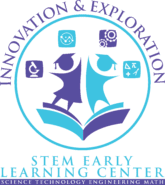Children learn best when they are actively engaged in their education. Hands-on learning allows young learners to explore, experiment, and discover in a way that fosters deeper understanding and long-term retention. This approach not only makes learning fun but also builds essential skills that benefit children in all areas of development.
The Benefits of Hands-On Learning
- Enhances Memory and Retention – Children remember concepts better when they physically interact with materials rather than just listening or reading.
- Encourages Critical Thinking – Hands-on activities require children to analyze situations, solve problems, and think independently.
- Develops Fine and Gross Motor Skills – Engaging with objects, building structures, and conducting experiments improve coordination and dexterity.
- Boosts Creativity and Imagination – Open-ended projects allow children to explore ideas and think outside the box.
- Promotes a Love for Learning – When children enjoy the learning process, they become more motivated and eager to explore new concepts.
How Innovation and Exploration STEM Early Learning Center Uses Hands-On Learning
At Innovation and Exploration STEM Early Learning Center, we integrate hands-on activities into our STEM-based curriculum to create engaging, meaningful learning experiences. Our programs include:
- Exciting Science Experiments – Encouraging curiosity through chemistry, physics, and biology activities.
- STEM-Based Engineering Challenges – Helping children develop problem-solving skills through building and design projects.
- Interactive Math Games – Making abstract math concepts easier to understand through play-based activities.
- Nature Exploration and Outdoor Learning – Encouraging discovery through hands-on interactions with the environment.
How Parents Can Support Hands-On Learning at Home
- Provide building toys like Legos or blocks to develop spatial awareness.
- Encourage art and craft projects to enhance creativity and fine motor skills.
- Cook together to introduce basic science and math concepts in a fun way.
- Conduct simple at-home science experiments, such as mixing baking soda and vinegar.
By embracing hands-on learning, we can give children the tools they need to succeed academically and in life. Want to see how we create engaging learning experiences? Explore our programs today!
